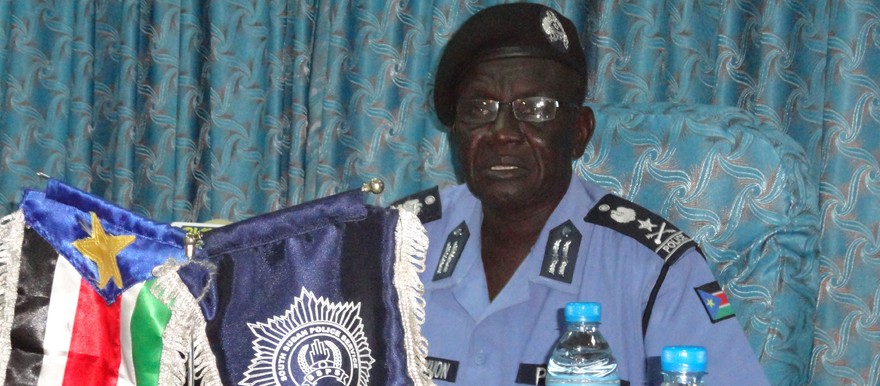Deputy Inspector-General of Police Andrew Kuol Nyuon says that the security forces have collected 500 guns in the South Sudanese capital Juba since the start of an operation last Saturday.
Beginning 22 March, combined teams of army, police, and other forces set up roadside checkpoints and carried out house-to-house searches in parts of Juba looking for contraband weapons. Police are looking also for army uniforms and motorcycles without license plates.
At a press conference on Friday at the premises of the Ministry of Interior, the deputy police chief said that the searches could go on for ‘months’ in Juba and will be extended to other states of the republic, though he declined to give specific dates for the expanded operations.
He stated that 500 guns were collected since the searches began. He warned both soldiers and civilians with guns to submit them to the nearby military or police centre or be arrested and punished according to the law.
He further warned that searchers will use force if necessary to collect a gun from anybody not authorized to have it; those who resist surrendering a weapon could be shot dead, he said.
Kuol also noted that the current insecurity in the country has scared away foreign investors, explaining that they are working to restore security in order to help address this.
At the same press conference, the official also announced a ministerial order dated 24 March instructing all missing police officers to report back to duty within seven days or face “serious administrative steps.”
The order, which references the December crisis, directs officers and staff of the ministry of interior who deserted their work to return to their posts or else face consequences. This likely refers to plans to cleanse the payroll of those who are considered to be ‘rebels’ or who are absent or missing.
Some citizens of Juba have complained about the searches. For her part, Ruth, a resident of Gudele, claimed that the team that came to her house stole money during the search.
“The police came in my house when I was not around and my daughter was at home. My daughter allowed them inside to inspect what they need, but at the end when I reached home I found that my 400 SSP was no longer there,” she said, noting that she did not report the case to the police.
“If I reported this issue to the police that my money was taken, those who took the money may plan to come again and kill me because they are having guns,” she added.
Marial Loul, a resident of Muniki 107, said, “You know, some houses have not been searched, for example in my area here the house of the neighbor of mine was not searched simply because he is a general in the army. This is not fair – the exercise must be for all,” he said.
But Taban Francis, a resident of Jebel market, appreciated the efforts by the government, saying he believed it can reduce the high crime rates in Juba town. “Yes, this is a good step because people were not happy in the first place to see illegal people having guns,” Taban said.
Related:
House-to-house weapons searches in Juba (23 March)
Photo: Deputy Inspector-General of Police Andrew Kuol Nyuon, 28 March 2014 (Radio Tamazuj)




